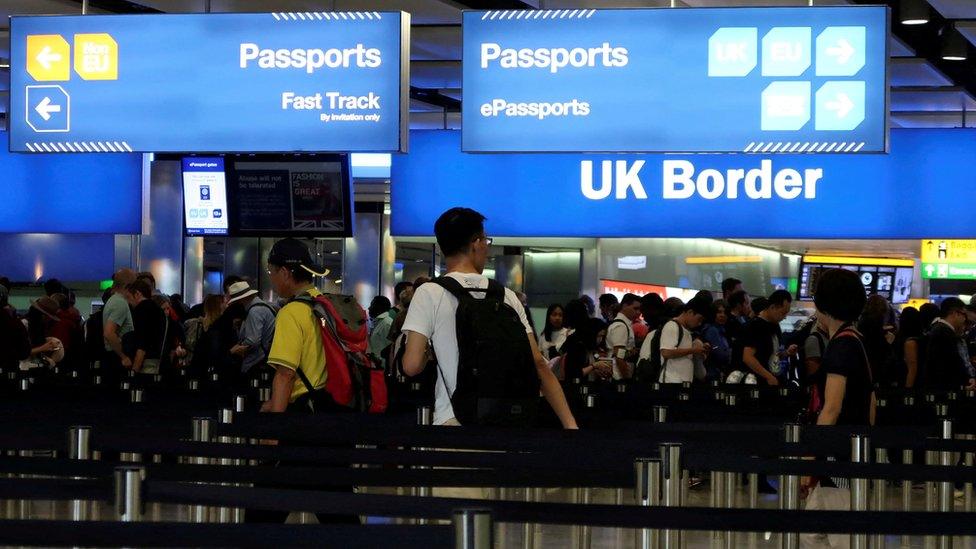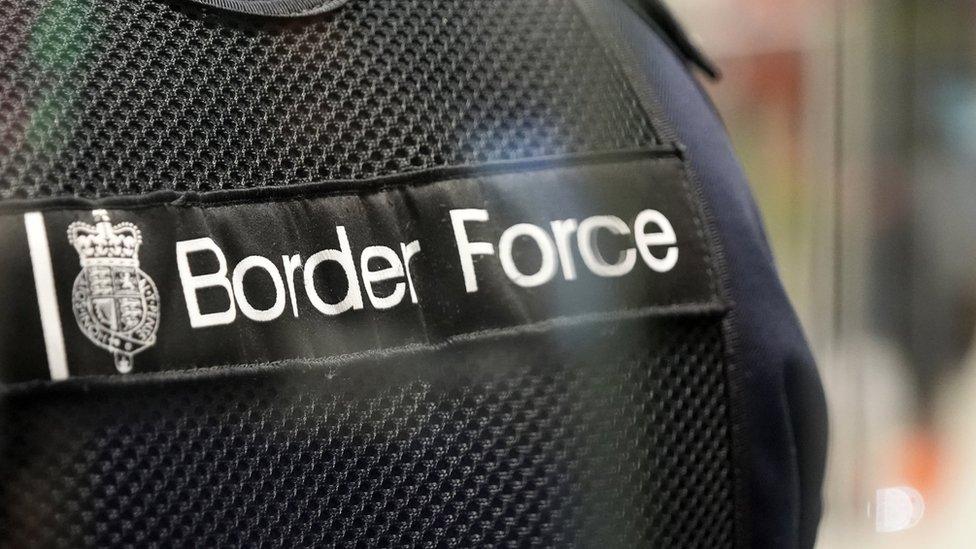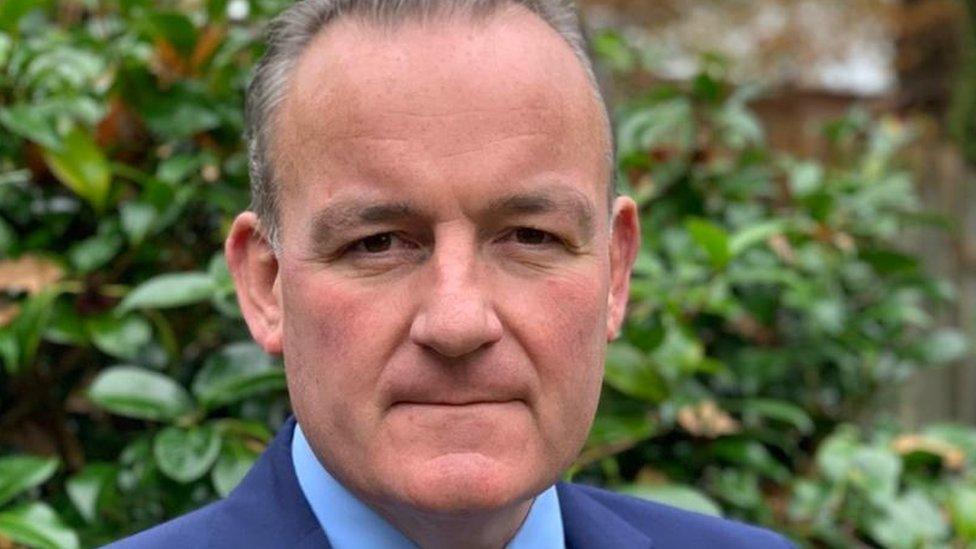Home Office is dysfunctional, says ex-borders watchdog David Neal
- Published
The Home Office is a massive and complex department, the former borders inspector tells The Today Podcast
The Home Office is dysfunctional and in urgent need of reform, the recently sacked independent borders inspector has told the BBC.
David Neal said immigration failures went to the top of the department.
In one example, he suggested a lack of radios for border gate officers at Heathrow was "madness".
The Home Office said: "A programme of work is already well under way to reform and strengthen Border Force's capabilities."
Mr Neal is the most senior independent voice with detailed knowledge of the Home Office to publicly criticise its handling of migration in recent times.
The government sacked him last month, saying he had leaked confidential information, after he told journalists of his concerns that the Border Force was failing to carry out proper security checks on private jets.
The latest statement from the Home Office said Mr Neal had "had his appointment terminated after he had leaked sensitive information he was told was inaccurate and as a result lost the confidence of the home secretary".
Responding to Mr Neal's interview, Security Minister Tom Tugendhat told BBC Radio 4's Today Programme on Monday morning that the release of sensitive information was a "sacking offence".
He added: "Our entire national security is based on our ability to keep some things... out of the public eye in order that we can defend the British people and make sure that our country is safe."
Mr Tugendhat said Mr Neal would not have been "surprised" by the Home Office's decision to fire him, saying the move was "entirely in keeping with standard government policy."
At the time of his sacking, 15 of Mr Neal's reports were being withheld from publication by the Home Office, the oldest dating back almost 18 months. Thirteen have now been put online. , external
Speaking to the Today Podcast in his first broadcast interview since he was fired, Mr Neal said he had regularly found that failings within the immigration system came down to cock-up rather than conspiracy - and too few officials at the Home Office were prepared to take responsibility.
"This is just poor Home Office activity," he said.
"I think there is a culture within the Home Office that means that they [immigration officials] are 'blaming up' to ministers."
When he had raised his findings with senior officials, he said he had sometimes received a "rolls eyes" expression, which he took to mean that civil servants felt their hands had been tied by "beastly" home secretaries.
"You can't get away with that in the army," said the former head of the Royal Military Police.
"You don't complain about the situation, you deal with the world as it is, not as you hope it to be."
He said he had seen "again and again, in so many areas, senior officials who just don't get it… it comes down to this challenge in the Home Office of policy people versus operational people.
"And this doesn't cost a lot. We're not talking about, sort of, super postgrads here. We're talking about normal people who have experience of delivery.
"It goes right to the top… if you're going to be responsible for a department, if you're going to be accountable for the outputs of your department, then clearly it goes right up to the Permanent Secretary."
One of his long-unpublished reports into e-Passport gates revealed that Heathrow Border Force officers tasked with roving around incoming passengers did not have radios to raise the alarm with colleagues.
"We're in this ridiculous position where the front line of defence at the eighth busiest airport in the world, the attention of officers... is attracted to their colleagues by whistling or waving - which is absolute madness," he said.
"I'm pretty sure that the public would think that is appalling."
The Home Office's published response to that report said it had "partially accepted, external" Mr Neal's recommendation for more radios - but it has not been clear whether all officers will get them.

Mr Neal said that over the course of 18 months, four different officials had been in charge of the Home Office's crisis-beset emergency asylum accommodation plans.
"That's absolute madness in terms of accountability."
Of his own role, he said: "It's a really important role of the independent inspector to bring to the attention of those in power what's going on.
"One of the frustrations that I've had is that I've not had access to ministers as quickly as I should have done."
When he inspected facilities for children brought ashore from English Channel small boats in 2021, his warning that the conditions were worse than facilities for detained Taliban terrorists in Afghanistan was taken seriously, but he said the then Home Secretary Priti Patel never found time to meet him - and her successor, Suella Braverman, only did so twice.
Mr Neal said that he had hoped to develop a better working relationship with James Cleverly, the current home secretary - and that evidence disclosed to an ongoing asylum court case showed the minister had approved his re-appointment from April, before it was then blocked by Downing Street. Those events had occurred before the row that led to his sacking, he said.
Mr Neal said: "The Home Office is dysfunctional. The Home Office needs reform. The prime minister, when he was running for leader of the [Conservative] Party, one of his 10 points was fundamental reform of Border Force.
"I've been sacked. So there'll be no scrutiny of small boats, there'll be no scrutiny of adults at risk in immigration detention, which is a controversial area. There will be no publishing of the Rwanda material."
The Home Office said: "It is the job of the Independent Chief Inspector of Borders and Immigration to identify challenges in our system, including those proposed by Border Force, so we can take action to address them."
Each of the reports by the Independent Chief Inspector of Borders and Immigration "will only be a snapshot" of what was happening and "will not reflect the changes we make as a result of their findings", the statement said.
It added the work the Home Office, Border Force and the NCA were doing with international partners to stop the boats was already having a return with small boat arrivals down by a third when Mr Neal was sacked.
Related topics
- Published29 February 2024

- Published20 February 2024
